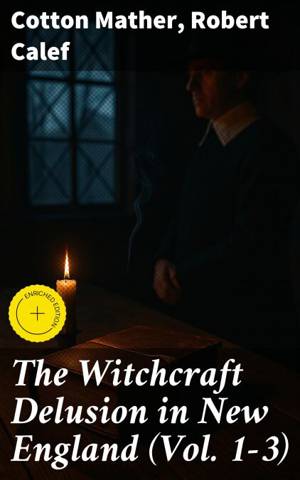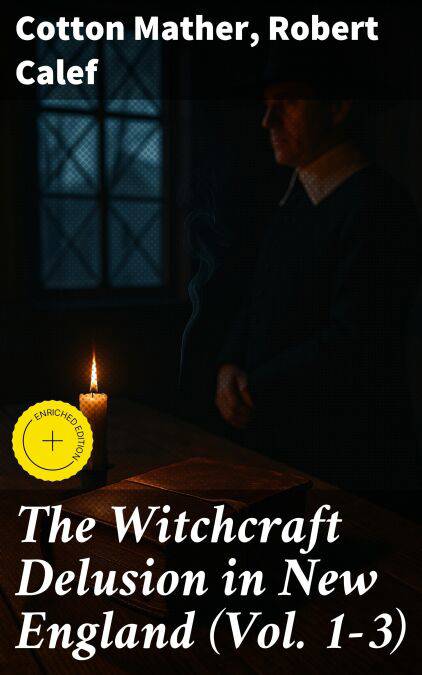
Je cadeautjes zeker op tijd in huis hebben voor de feestdagen? Kom langs in onze winkels en vind het perfecte geschenk!
- Afhalen na 1 uur in een winkel met voorraad
- Gratis thuislevering in België vanaf € 30
- Ruim aanbod met 7 miljoen producten
Je cadeautjes zeker op tijd in huis hebben voor de feestdagen? Kom langs in onze winkels en vind het perfecte geschenk!
- Afhalen na 1 uur in een winkel met voorraad
- Gratis thuislevering in België vanaf € 30
- Ruim aanbod met 7 miljoen producten
Zoeken
The Witchcraft Delusion in New England (Vol. 1-3) E-BOOK
Its Rise, Progress, and Termination (Complete Edition)
Cotton Mather, Robert Calef
E-book | Engels
€ 0,49
Omschrijving
The three-volume collection, *The Witchcraft Delusion in New England*, presents a profound exploration of the hysteria and religious fervor that gripped 17th-century New England during the notorious witch trials. Through a variety of literary styles, from Mather'Äôs zealous sermons to Calef'Äôs skeptical counterarguments, the anthology paints a vivid picture of a society caught between fear and reason, belief and skepticism. The collection is significant as it not only documents the trials but also exposes the contrasting perspectives that fueled one of the most infamous periods in American colonial history, offering invaluable insights into early American moral and social dynamics. The contributors, predominantly Cotton Mather and Robert Calef, bring to the anthology their unique voices that embody the Puritan religious zeal and the burgeoning Enlightenment skepticism. Mather, a staunch Puritan minister, was pivotal in propagating the witch hunts, while Calef, a merchant, famously countered the hysteria with a more rational perspective. This collection offers a rare glimpse into the period'Äôs ideological clash'Äîa reflection of a society at the crossroads of old-world superstitions and new-world rationality, enriching the reader's understanding of the era's cultural and intellectual upheaval. This anthology invites readers to explore the conflicting narratives surrounding the witchcraft trials, providing a comprehensive viewpoint through the juxtaposition of divergent opinions. It is an invaluable resource for understanding the complexities of early American thought and the interplay of fear and faith. Students, scholars, and history enthusiasts alike will find this collection to be an educational treasure, offering depth and dialogue across its pages and compelling readers to ponder the eternal struggle between fear and understanding in human history.
Specificaties
Betrokkenen
- Auteur(s):
- Uitgeverij:
Inhoud
- Aantal bladzijden:
- 607
- Taal:
- Engels
Eigenschappen
- Productcode (EAN):
- 8596547781851
- Verschijningsdatum:
- 17/12/2023
- Uitvoering:
- E-book
- Beveiligd met:
- Digital watermarking
- Formaat:
- ePub

Alleen bij Standaard Boekhandel
Beoordelingen
We publiceren alleen reviews die voldoen aan de voorwaarden voor reviews. Bekijk onze voorwaarden voor reviews.









